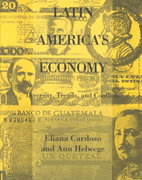Question
Assume that there are two types of radios on the market: good radios and bad radios. Of the firms that manufacture radios, 50% produce good
Assume that there are two types of radios on the market: good radios and bad radios. Of the firms that manufacture radios, 50% produce good radios and 50% produce bad radios. A good radio does not break for five years, while a bad radio has a 50% chance of breaking when it is first used. If the bad radio does not break immediately, it works for five years, just like the good radio. A good radio is worth $100 to consumers, and a bad radio is worth nothing.
a) What is the maximum price any consumer would be willing to pay for a radio if both types of firms produce radios? (1 markah/mark)
b) If it costs $55 to manufacture each radio, will any firms want to produce radios? (1 markah/mark)
c) If it costs $50 to manufacture each radio, which firms will want to produce radios? (1 markah/mark)
d) Suppose that it costs $50 to manufacture each radio and $20 to repair a broken radio. Also suppose that the firms that produce good radios give a warranty in which they promise to repair any radio that breaks within five years of purchase. If the price of radios were to rise above $50, which type of firm would issue a warranty? If the price rose to $60, which type of firm would offer a warranty? Can warranties signal quality? What is the equilibrium price for radios in the market? (5 markah/marks)
Step by Step Solution
There are 3 Steps involved in it
Step: 1

Get Instant Access to Expert-Tailored Solutions
See step-by-step solutions with expert insights and AI powered tools for academic success
Step: 2

Step: 3

Ace Your Homework with AI
Get the answers you need in no time with our AI-driven, step-by-step assistance
Get Started


